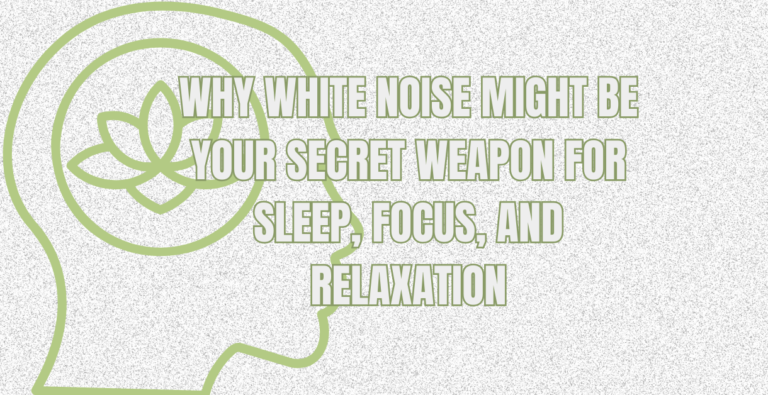
Sleep isn’t just a necessary pause; it’s a vital player in our physical and mental well-being. It’s a journey where our health is guided by intricate physiological and neurological processes, still unraveling as we embrace the land of dreams. Let’s delve into the intricate dance poor sleep performs on our body and mind.
Sleep unfolds in stages: Rapid Eye Movement (REM) and Non-Rapid Eye Movement (NREM). NREM becomes the backstage crew, balancing hormones, rejuvenating muscles, and orchestrating cellular repair. Meanwhile, REM steps into the spotlight, enhancing emotional stability and memory consolidation, fine-tuning brain circuits for sharper mental processes. Growth hormone and cortisol gracefully follow their natural rhythm, creating a sleep symphony.
Beyond the dance of hormones, sleep acts as a comprehensive rejuvenator, fortifying our heart and diligently repairing skin cells. But what happens when the rhythm falters? Poor sleep takes center stage, impacting us in ways we might not realize.
How poor sleep affects your body
- Reduced Cognitive Function:
Ever experienced that foggy-headed feeling after a restless night? It’s your brain’s way of signaling the toll poor sleep takes on cognitive abilities. Attention, decision-making, and memory consolidation all face the music. - Weakened Immune System:
Picture your immune system as a superhero – lack of sleep weakens its powers, making your body more susceptible to infections. Reduced immunity makes it a tougher battle against viruses and common illnesses. - Gaining Weight and Disrupting Metabolism:
Poor sleep and a disrupted hormonal dance lead to weight gain. Hormones that regulate hunger and satiety lose their rhythm, often resulting in increased cravings and overeating. - Heart-related Stress:
Extended periods of sleep deprivation increase stress on the cardiovascular system. It disrupts blood vessel function, elevates blood pressure, and raises the risk of heart disease. - Mood Disorders and Mental Health Concerns:
The silent turmoil of anxiety, depression, and irritability often finds its roots in inadequate sleep. Long-term sleep deprivation becomes a breeding ground for various mental health issues. - Lack in Glucose Management:
Think of sleep as a guardian of glucose metabolism. Lack of it reduces insulin sensitivity, elevating the risk of type 2 diabetes and compromising glucose control. - Inflammation and Cellular Stress:
Sleep, a maestro in cellular renewal and repair, loses its rhythm in poor sleep conditions. Cellular stress and inflammation rise, laying the foundation for chronic inflammatory diseases. - Modified Hormonal Balance:
The delicate dance of hormones, disturbed by inadequate sleep, ripples across various physiological processes. Cortisol and growth hormone release lose their harmonious balance. - Reproductive Health and Reduced Libido:
A less-explored realm of sleep’s impact lies in reproductive health. Hormonal imbalances triggered by insufficient sleep can affect fertility and libido, affecting both men and women. - Enhanced Sensitivity to Pain:
Sleep, disrupted and restless, amplifies sensitivity to pain. Chronic pain conditions worsen when sleep is disturbed, intensifying the struggle for those already dealing with them.
Poor sleep goes beyond nightly discomfort; it quietly affects both physical and mental health. Recognizing its impact is the first step to prioritizing quality rest and building a foundation for overall well-being.
Now, let’s flip the narrative and explore the serenade of a well-rested night.
What happens when we sleep well
Cellular Restoration:
In the quiet hum of NREM sleep, especially in its deeper stages, our body orchestrates cellular restoration. Tissues and muscles undergo meticulous repair, guided by the release of growth hormone, promoting cellular growth and rejuvenation.
Memory Consolidation:
As the brain takes center stage during REM sleep, it becomes an active conductor of memory consolidation. Sorting through the day’s events, arranging data, and preserving recollections – it’s a symphony of memory formation.
Neural Improvement:
While we rest, our brain engages in a self-organizing process. Strengthening vital neural pathways, it fine-tunes synaptic connections, enhancing cognitive abilities such as learning, decision-making, and problem-solving.
Hormone Control:
Sleep and hormones dance hand in hand. Essential hormones like growth hormone and cortisol, pivotal for growth and stress regulation, follow a natural rhythm that aligns with our sleep-wake cycle.
Mental Strength:
In the realm of dreams, our emotional well-being takes center stage. REM sleep acts as a built-in therapist, aiding in processing and managing emotions, fostering mental strength.
Metabolic Reset:
Sleep plays a pivotal role in metabolic health. It delicately balances hormones regulating hunger and satiety, contributing to a metabolic reset that supports overall well-being.
Body Temperature Regulation:
Nightly, our body temperature naturally decreases during sleep, creating an optimal environment for restful slumber. It’s a subtle dance ensuring our comfort throughout the night.
Detoxification:
The glymphatic system, the brain’s dedicated waste-clearing crew, becomes more active during sleep. By eliminating waste and toxins, it actively contributes to preserving overall brain health.
Regaining Physical Vitality:
Beyond the physical, sleep emerges as a comprehensive rejuvenator. Strengthening the cardiovascular system and diligently repairing skin cells, it sets the stage for waking up refreshed and revitalized.
How can we improve our sleep?
Let’s dive into down-to-earth suggestions that can transform your sleep routine, making bedtime the cozy, restful escape it’s meant to be.
TOP 3:
- Brainwave Guidance Meditation: Enjoy deeper, more restful sleep and wake up feeling fully refreshed – TRY THIS
- Throat exercises: If you snore or suffer from sleep apnea then try these throat exercises that will improve your sleep
- Supplements for sleep support: try natural supplements to improve your sleep

4. Craft Your Sleep Oasis: Picture this: soft sheets, fluffy blankets, and pillows that cradle you just right. Transform your bedroom into a sanctuary that beckons you to unwind and enjoy a night of sweet dreams.
5. Light up Your Life Smartly: Bring the magic of the outdoors inside with smart lighting. Mimic the natural light changes throughout the day to help your body find its sleep-wake rhythm. It’s like a sunrise and sunset right in your bedroom.
6. Snuggle up on a Dreamy Mattress: Upgrade your sleep game with a mattress that feels like a hug from a cloud. Memory foam, latex, or a hybrid – find the mattress that sings you the lullaby of comfort.
7. Relax with Pre-Sleep Rituals: Wind down like a pro by adding soothing rituals to your evening routine. Whether it’s reading a good book, stretching gently, or soaking in a warm bath, find what whispers, “It’s bedtime.”
8. Aromatherapy Bliss: Ever tried to fall asleep in a field of lavender or beside a eucalyptus grove? Aromatherapy, through diffusers or sachets, can bring that calming outdoor scent right into your sleep haven.
9. Cozy PJs Matter: Slip into sleepwear that’s as comfortable as a cloud. Natural fabrics like cotton or bamboo can make drifting into dreamland a breeze, quite literally.
10. Block Out the World: Say hello to blackout curtains – your ticket to a dark, dreamy sleep environment. No more unwanted streetlight interference; just you and the quiet of the night.
11. White Noise Magic: Drown out the city symphony with white noise. Apps or machines that play soothing sounds – like raindrops or ocean waves – can create a peaceful audio backdrop for your slumber.
12. Be the Sleep Detective: Track your sleep patterns with cool gadgets or apps. Discover your nighttime rhythms, and unveil the mysteries of your sleep quality.
13. Pillow Talk: Meet your perfect match in the pillow department. Whether you’re a side, back, or stomach sleeper, there’s a pillow out there waiting to cradle you into dreamland.
14. Limit Screen Time: Reduce exposure to screens before bedtime, as the blue light can interfere with melatonin production.
15. Watch Your Diet: Avoid heavy meals, caffeine, and alcohol close to bedtime.
Conclusion:
Upgrading your sleep doesn’t require a sleep guru or a magic wand. These simple, human-friendly tips and tweaks can make your journey to dreamland as delightful as the dreams themselves. Sleep isn’t just a break from reality; it’s an essential part of a healthy, happy life. Here’s to nights filled with deep slumber and mornings full of vitality! Sweet dreams await!




[…] 10 Effects of Poor Sleep on Your Body and Mind […]
[…] 10 Effects of Poor Sleep on Your Body and Mind […]